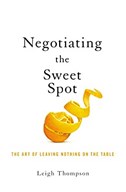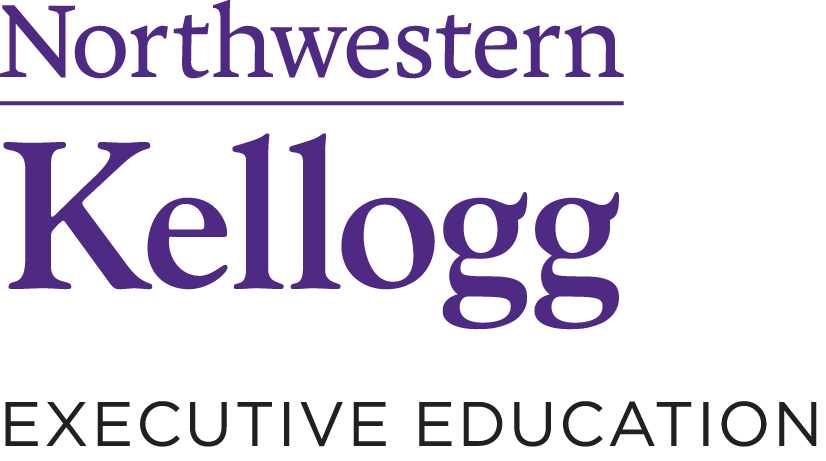- Behaviour
Negotiating the Sweet Spot
Kellogg School of Management’s Leigh Thompson offers practical negotiation strategies for use in relationships, workplaces and online
As individuals we encounter the need to negotiate almost every day. Unfortunately, most people do not naturally have the skills to negotiate effectively and rather than achieving perfect ‘win-win’ outcomes they too often fail to capture maximum potential gains in their personal negotiations or at work.

In her new book, Negotiating the Sweet Spot: The Art of Leaving Nothing on the Table, Leigh Thompson, Professor of Dispute Resolution & Organizations in the Kellogg School of Management, offers valuable assistance. In a deeply considered, but easily accessible way, she provides a series of practical tools based on her years of research and classroom experience, and on insights from psychology, to help us build the skills needed to negotiate more successfully in all aspects of our lives.
Negotiations can fail for many reasons but high on the list is ‘fixed-pie perception’—the idea people often hold that whatever they want in an interpersonal situation, the other party has completely opposing preferences—carving oneself the biggest slice of pie is all important. With this mindset, rather than focusing on a win-win outcome the framing is always one of competition and ultimately ‘win-lose’.
Another mistake is that people assume the best solution is to find a compromise—the common belief that the division of resources between both sides of a negotiation should always be equal. This sub-optimal approach suggests that so long as you reach a deal and make some profit that is good enough. This Thompson describes as the ‘win-win mirage’—a trap that prevents people from finding the true sweet spot.
Thompson core message is that win-win is not about dividing the pie or the money or the value. Rather, it is about exploring all the potential avenues for mutual value creation and capturing all of the value—that is when you find the sweet spot. And according to her research, this is rarely achieved—too often a great deal of potential value is left on the table.

Thompson lays out a series of specific strategies, which she calls ‘hacks’, aimed at finding the sweet spot in a wide range of different scenarios. These require ‘hackers’ to suspend disbelief, go against conventional wisdom, and be prepared to occasionally fail. The hacks are easy to use and require no complex training. The author devotes three chapters to describing sweet spot hacks—nine for relationships, thirteen for the workplace, and, given the book was completed during the Covid-19 lockdown, eleven sweet spot hacks for virtual life.
Essentially the relationship hacks involve both checking the urge to minimize conflict (which will just lead to compromise), but also resisting the temptation to “let them have a piece of your mind!” Instead, the aim should be to understand the other side’s perspective to find the trade-offs that can bring increased value to both parties. The sweet spot hacks for resolving workplace conflict can be used both with colleagues in informal, everyday negotiations and in more formal business situations with clients, customers, and other stakeholders.
The hacks for virtual negotiation take the premise that negotiating by email or video involves a very different set of strategies to face-to-face. For example, online communication is often asynchronous and so people do not have to compete for airtime. They can write, post, and deliver messages on their own terms. This eliminates a key factor in face-to-face discussions—physical charisma. Physical presence, body language, articulate speech, and good looks, loose their influence—replaced by a different type of charisma, electronic charisma, which is how a person uses technology-based messaging.
Negotiating the Sweet Spot: The Art of Leaving Nothing on the Table. Leigh Thompson, Harper Collins, 2020, ISBN 978-1-4002-1743-4
The Kellogg School of Management at Northwestern University is recognized globally as a pioneer in general management education that offers innovative academic opportunities for today’s leading thinkers
ARTICLES YOU MIGHT LIKE
RESEARCH
LBS and ESMT study identifies the danger of citing information based on the ‘gist’ of the truth rather than the ‘literal’ truth
DEVELOPING LEADERS QUARTERLY MAGAZINE AND WEEKLY BRIEFING EMAILS


































